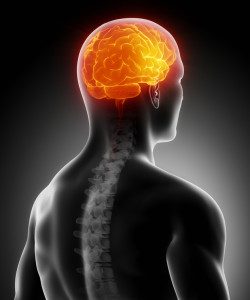 Researchers recently reported that stem cell therapy could be the key to treating Traumatic Brain Injuries (TBIs).
Researchers recently reported that stem cell therapy could be the key to treating Traumatic Brain Injuries (TBIs).
In a clinical trial, researchers from the University of Texas Health Center at Houston discovered that by using a patient’s own stem cells, they could preserve brain tissue and inhibit the body’s neuroinflammatory response to trauma.
“The data derived from this trial moves beyond just testing safety of this approach,” said the principal investigator, Charles S. Cox, Jr. “We now have a hint of a treatment effect that mirrors our pre-clinical work, and we are now pursuing this approach in a Phase 2b clinical trial sponsored by the Joint Warfighter Program within the U.S. Army Medical Research Acquisition Activity, as well as our ongoing Phase 2b pediatric severe TBI clinical trial – both using the same autologous cell therapy.”
Traumatic Brain Injury is caused by sudden trauma to the head. Severe TBI can lead to an extended period of unconsciousness or amnesia as well as long-term damage due to swelling in the brain. If blood flow to the brain is disrupted, depriving it of oxygen, irreversible brain damage may occur.
According to data from the Centers for Disease Control and Prevention (CDC), 1.7 million Americans suffer a TBI each year. Of those patients, 52,000 die. The leading cause of Traumatic Brain Injury is slips or falls, which make up 28% of all cases. Slip, trip, and fall injuries also account for about one-quarter of all reported personal injury claims per fiscal year.
There are currently few therapies effective at treating TBI. Cox has recently been awarded $6.8 million in funding from the U.S. Department of Defense to assess the safety and efficacy of stem cell therapy in adults with TBI. He strives to create a new avenue of treatment that would increase the likelihood of recovery after severe head injuries.
Cox’s research could potentially improve the quality of life for the millions of people who suffer from TBIs each year. For a patient, this new treatment could mean the difference between regaining functionality and remaining completely dependent on others for the rest of their life.



No Comment